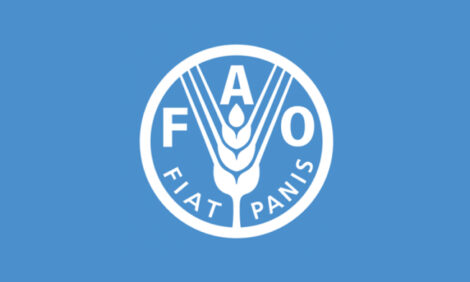



UK And Brazil Call For Action On Food Prices
BRAZIL & UK - The UK and Brazil have called on members of the G20 to take action to tackle food price volatility, in the face of food price inflation and long-term food security challenges.
UK Environment Secretary Caroline Spelman, who is visiting Brazil, agreed with Brazilian Agriculture Minister Wagner Rossi that the two countries would work together on practical measures to tackle volatility in food markets, and said it was important to find a way to end export bans, which simply move price volatility problems elsewhere in the world without increasing sustainable production.
Brazil, with 19 per cent of the world’s arable land, is one of the world’s agricultural powerhouses and has a crucial role to play in global food security. As the world’s largest producer of coffee, oranges, sugar and poultry and one of the top three producers of tobacco, cocoa, corn and beef, it is also home to 33 per cent of the world’s rainforest, a fifth of its fresh water and around a third of its biodiversity.
In their joint declaration, Mrs Spelman and Mr Rossi welcomed the opportunity for G20 Agriculture Ministers to take forward measures to tackle both the short-term and long-term challenges of food price volatility.
The Ministers said: “The most important impacts of price volatility are on poorer consumers, particularly those in developing countries, and in economies which are significant net importers of food. Price volatility also increases uncertainty to producers, when it translates to income volatility.
“We jointly agree that global commodities markets should be open, transparent and efficient. We believe that improved information exchange and collaboration will significantly improve the international community’s capacity to deal with, and help in some cases to avert, future price spikes.
“It is important to improve the efficiency and transparency of global commodity markets to regulators, market participants and the public and to ensure that financial instruments are fully available to producers and consumers to enable them to manage the risks of price volatility.
“Brazil and the United Kingdom recognise that increasing production in a sustainable way is the only consistent solution, in the long term, to reduce agricultural prices. Thus, both countries emphasise the importance of broadening international technical cooperation in order to help poor countries accelerate their agricultural development.”
Earlier this year, Mrs Spelman called for an end to food export bans, with increased transparency around global food stocks to reduce unnecessary uncertainty and volatility in food markets.
Mrs Spelman said: “Food price volatility hits the poorest the hardest. If food markets work better, then people all over the world benefit.
“Less volatile food commodity prices will mean fewer price spikes, less food price inflation and can help to avoid the sorts of riots we’ve seen over food prices in many parts of the world in recent years.”
The French Presidency of the G20 has named combating commodity price volatility, including volatility in agricultural commodity prices, as one of its priorities.
G20 Agriculture Ministers, including Mrs Spelman and Mr Rossi will meet in June in order to propose solutions to strengthening food security and enhancing food production and supply. Commodity price volatility is expected to feature on the agenda for the G20 Summit in November.
Mrs Spelman will meet French Agriculture Minister Bruno Le Maire in Brasilia, who is visiting in advance of the June G20 Agriculture Ministers’ meeting in France.
TheCattleSite News Desk


